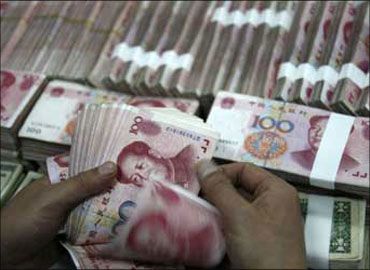Many countries, especially those in a controlled economy, would like to peg their currency against the dollar as it ensures stability
 Terming devaluation of currencies as a ‘worrisome trend’, RBI Governor Raghuram Rajan on Thursday said China's move to devalue its currency and to protect its stock markets raise questions about the 'true strength' of the world's second largest economy.
Terming devaluation of currencies as a ‘worrisome trend’, RBI Governor Raghuram Rajan on Thursday said China's move to devalue its currency and to protect its stock markets raise questions about the 'true strength' of the world's second largest economy.
"I think more generally across the globe, because of a weak demand, we've seen significant efforts to depreciate currency, you can call it monetary policy or direct exchange rate intervention. That's a worrisome trend," Rajan said.
"The Chinese move raised some questions about the true strength of its economy also," he said at the second SBI Banking and Economics Conclave.
The RBI Governor is concerned that if countries devalue currencies because of low demand, it can lead to a ‘free for all’ at the global stage and its effect on trade can be substantial.
A recent article in Fortune stated that 'with the US average tariff on industrial goods well under 2 per cent, this change in China’s currency value easily swamps most US tariffs.
'And given the fact that the US dollar was already strong, this move is an added disadvantage to US exports headed for China compared to exports from other countries,' the article added.
What is currency devaluation? Why is it such a scary word?
Value of a currency between the two countries depends on a host of factors like interest rates, inflation, gross domestic product as well as supply and demand of the currencies in question.
Devaluation is used as a policy tool by various countries to infuse growth.
Many countries, especially those in a controlled economy, would like to peg their currency against the dollar as it ensures stability.
Countries who peg their currency are the ones who would like to keep their currency lower to take advantage of the depreciation.
China till recently had pegged its currency to the dollar.
Currency manipulation is one of the schemes which China has used for years to give their exports an unfair advantage.
A report by the Economic Policy Institute in the US found that an increasing trade deficit to China, a decrease in US export capacity to China and mounting foreign debt have caused millions of jobs to be lost or displaced.
Exports are the Chinese engine of growth. The lower the value of the yuan, the more advantageous the situation is for Chinese exporters.
Image: A Chinese bank teller counts currency. Photograph: Reuters









 © 2025
© 2025